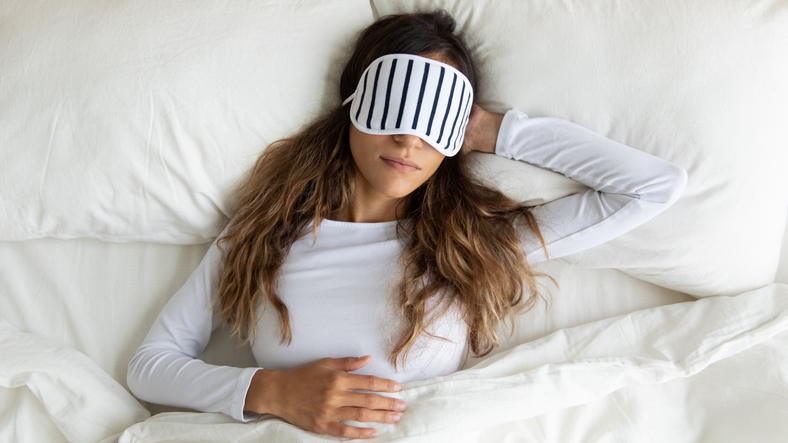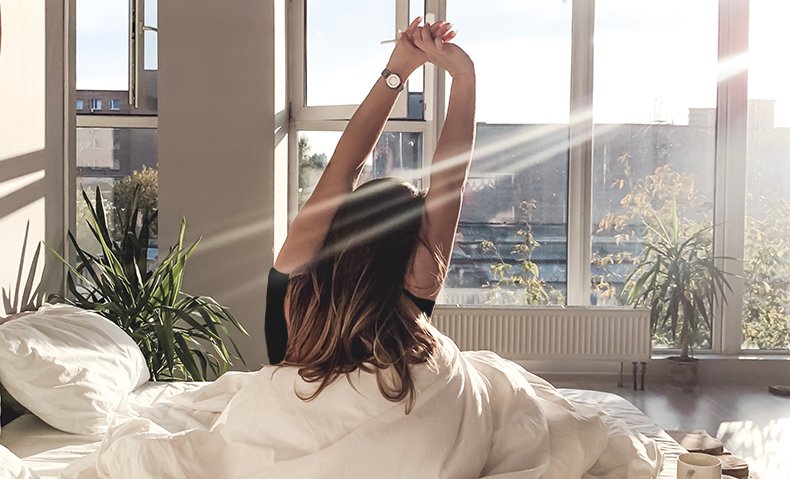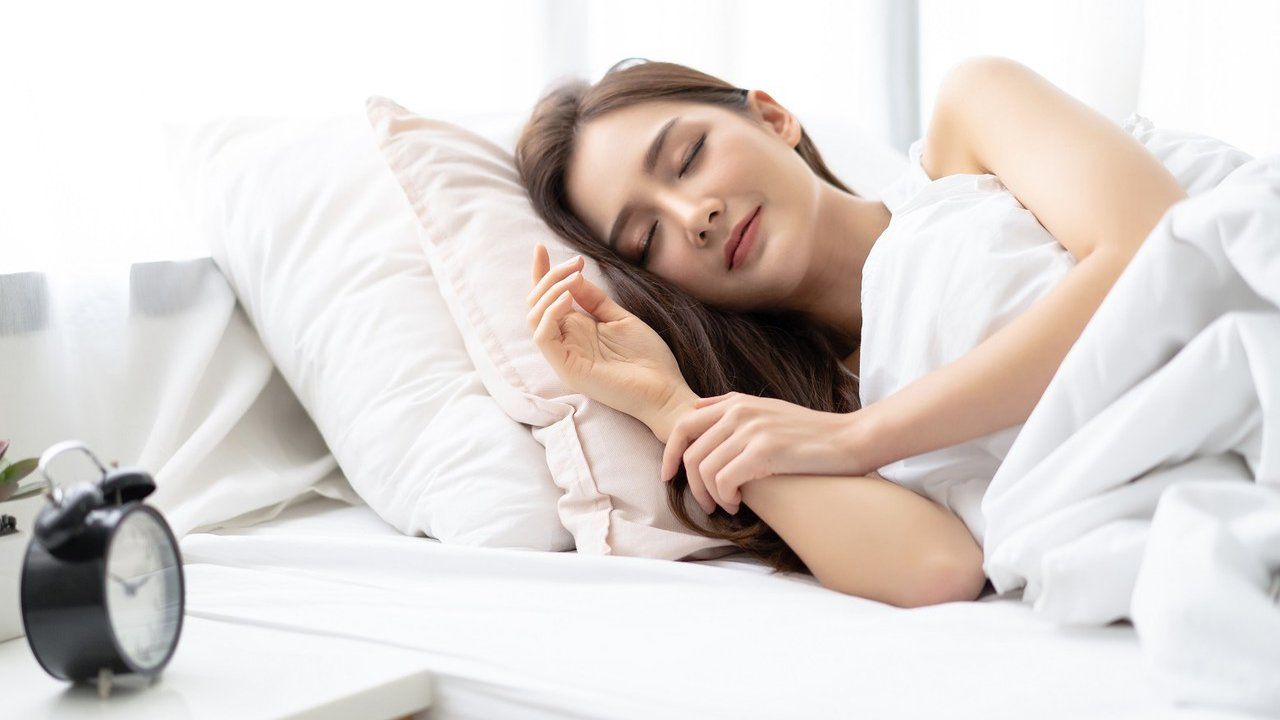10 Sleep Hygiene Habits for Improved Rest and Health
Simple sleep hygiene habits can improve sleep quality and increase restfulness. Enhancing your resting methods can have a significant impact on your general health and wellbeing. It can be simple to adopt healthier sleeping habits and even little adjustments might yield benefits. Set up a regular sleep pattern. Establish a calming evening ritual. Make your sleep environment comfortable. These are all examples of sleep hygiene habits.
Continue to read more about better sleep practices that reflect better sleep and health connections in the given blog. Our expert team of trusted10.io will guide you to build a better sleep routine. Avoid caffeine late limit screen time and exercise for better rest. Keeping your bedroom calm dark and cold is another crucial sleep habit. You can get better sleep by adhering to some basic sleep hygiene practices. Enhanced energy elevated mood and enhanced concentration during the day are all correlated with better sleep. A healthy sleep schedule is a critical first step toward improved general health and well-being.
Sleep Hygiene: What Is It?
The term "sleep hygiene" describes the routines and behaviors that can help you create a healthy sleep schedule and enhance the quality of your sleep. It's essential to practice proper sleep hygiene for general health and well-being. A good night's sleep is critical for overall health. Sleep is vital to maintaining good physical and mental health. It enhances cognitive function and fortifies the immune system. On the other hand a lack of sleep over an extended period of time can worsen mental disorders diabetes obesity and cardiovascular disease. By establishing healthy sleep habits you can enhance your sleep quality leading to increased energy levels better concentration and an overall improved quality of life. Adopting certain habits can enhance sleep quality and lead to better rest. Scroll down to get to know more about enhancing your sleep routine.
10 Sleep Hygiene Habits
Stick to a Consistent Sleep Schedule
Sleep is like food for the brain. Just like your body needs food at the same time every day your brain needs sleep at the same time too. Your body will work more generally if you keep your sleep-wake cycle regular. This means going to bed and waking up at the same time every day even on the weekends. This is important for feeling refreshed and energized when you wake up.
Few Tips
- Pick timings that will enable you to sleep for eight to ten hours per night.
- Engage in the same relaxing activities right before bed each night to help your body tell you it's time to wind down.
- Your brain may have trouble recognizing that it is time for bed due to the light from devices.
- When there's no work or school make every effort to maintain your sleep routine.

Create a Relaxing Bedtime Routine
To sleep well and feel refreshed it's essential to have a place where you can relax and feel comfy. This place is usually your bedroom. Making sure your bedroom is lovely and peaceful can help enhance sleep quality. When your sleep is good your health gets better too because there's a significant connection between sleep and health.
Few Tips
- Your bedroom should be dark at night. Use curtains or shades to block out light from outside.
- Make sure it's quiet too. If you hear a lot of noise maybe a fan or a white noise app can help cover it up.
- Not too hot not too cold. Just right. Around 65 degrees Fahrenheit is perfect for most people. This makes your sleep cozy and uninterrupted.
- Your bed should be really comfortable. This means having a good mattress and pillows that you like.
- Also use blankets that feel nice and soft. Choose activities that calm you down not things that make you excited or stressed. Maybe listen to soft music or read a story.
Limit Exposure to Screens Before Bedtime
The blue light that comes from TV computer and phone screens can actually make it harder for your body to get ready for sleep. Our bodies have an internal "clock" that controls when we feel awake and sleepy. This clock is controlled by a hormone called melatonin. Our bodies produce more melatonin as the day grows darker which helps us feel drowsy and ready for bed. But our bodies are tricked into believing it is still sunlight by the blue light emitted by screens. Because blue light inhibits the generation of melatonin our bodies are unable to recognize when it is time to go to sleep. This disruption in our natural sleep-wake cycle can make it very difficult to fall asleep at night even when we're trying.
Few Tips
- Stop watching TV and using computers tablets and phones 1-2 hours before your usual bedtime.
- Take a break from blue light for your body. Utilize apps or device settings that limit your nighttime exposure to blue light. Many devices have a "night mode" that shifts colors.
- When using a screen right before bed wear glasses that block blue light to prevent blue wavelengths from entering your eyes.
- Make your bedroom a screen-free zone. Phones and laptops should not be used in your bedroom.
Exercise Regularly But Not Before Bed
Exercise is great for promoting better sleep but it's important to avoid intense workouts too close to bedtime. During exercise your body releases hormones like endorphins that can give you extra energy and make you feel more awake. That's the opposite of what you want right before going to bed. Your body temperature can also rise with intense activity. A few hours later when your body temperature begins to decline once more it can assist in alerting your brain to the onset of sleepiness. However if the workout takes place too close to bedtime you can find it difficult to fall asleep.
Few Tips
- Aim for morning or afternoon workouts. Getting exercise earlier in the day like a morning walk or an after-work gym session allows your body enough time to cool down before bed.
- Choose lower-intensity exercises in the evening. Activities like gentle yoga stretching or light resistance training a few hours before bed can promote relaxation without overheating your body.
- Avoid exercise at least 3 hours before bedtime. As a general rule stop any vigorous exercise about 3 hours before your regular bedtime to allow your body to return to its resting state.
- Stay hydrated. Drink plenty of water especially if exercising in the evening to help regulate your body temperature as you wind down for sleep.
Watch Your Diet
Sleep quality can be significantly impacted by what you eat and drink. Some things can make it hard to fall asleep or stay asleep while others can help you get a good night's rest. Let's look at how diet plays a significant role in your sleep routine. Your brain wakes up when you consume caffeine. It's present in chocolate tea soda and coffee. Having caffeine too close to bedtime can keep you awake because your brain stays alert when it's time to sleep. Eating a big heavy meal right before bed can make you feel uncomfortable because your stomach is working hard to digest all that food. This can make it hard to settle down and drift off to sleep.
Few Tips
- Try not to have caffeine late in the day. Caffeine should ideally be avoided at least six hours before bedtime. This allows your body some downtime.
- Eating lighter meals in the evening can help prevent that too-full feeling that keeps you awake. Consider having a small light snack before bedtime rather than a large meal if you're hungry.
- Staying hydrated helps your body stay in balance but try to drink more water during the day and less before bed. You won't have to get out of bed in the middle of the night to use the restroom this way.
- Alcohol can actually worsen the quality of your sleep even if it may make you feel drowsy. Try to limit alcohol and give your body a few hours to process it before bed.
- Some foods can help you sleep better. Foods with magnesium like almonds and bananas or calcium like dairy products can be part of a sleep-friendly diet.
Evaluate Your Sleep Environment
Your bedroom is like your personal sleep cave. You can fall asleep more quickly and stay asleep longer if you make everything just ideal for sleeping. Let's investigate ways to optimize your sleeping environment! How well you sleep is greatly impacted by the design of your bedroom. If it's too noisy too bright or not comfy it might be hard for you to fall asleep.
Few Tips
Use a sound machine earplugs or headphones to block out disruptive noises from outside or inside your home.
Choose bedding and sleepwear made from fabrics that don't make a lot of rustling sounds when you move.
Install blackout curtains or an eye mask to completely darken the room. Cover or remove any blinking or bright lights from electronics.
Set your thermostat to a cooler temperature around 65°F (18°C) which is ideal for sleeping. Use fans open windows or adjust blinds/curtains to increase airflow. Choose breathable sheets and pajamas made of natural fibers.

Manage Stress
Managing stress is crucial for enhancing sleep quality and maintaining the critical sleep and health connection. Poor sleep can result from severe disruptions in your ability to fall and stay asleep caused by high levels of stress. Improving your overall sleep can be significantly aided by putting healthier sleep routines into practice to lower stress.
Few Tips
- Before going to bed try some deep breathing yoga meditation or gentle stretching to help relax your body and mind and facilitate sleep.
- A regular pre-bedtime regimen lets your body know when it's time to relax. Read a book have a nice bath or enjoy some calming music.
- If you're lying awake with a restless mind keep a notepad by your bed. Writing down your thoughts can help clear your mind.
- If you wake up feeling anxious in the night practice slow deep breaths to activate the body's relaxation response.
Establish a Pre-Sleep Routine
Your body will respond more favorably to a soothing routine before bed if you follow it. This will help you wind down and get ready for sleep. Establishing this constant pre-bed practice allows your mind and body to associate specific relaxing activities with the sleep period.
Few Tips `
- Bathe or shower in warm water. It can be stimulating to feel sleepy because a warm bath causes your body temperature to increase and then fall.
- Add some calming scents like lavender to enhance relaxation.
- Practice gentle stretching or yoga. Light movement can help relieve muscle tension from the day while focused breathing activates the body's relaxation response.
- Avoid vigorous exercises too close to bedtime.
- Reading something lighthearted can distract your mind from the stressors and concerns of the day.
- Stay away from electronic screens which can suppress sleep hormones.
- Putting on soft instrumental music or soothing nature sounds like rain or ocean waves can help lull your body into a sleepy state.
Cut Back on Alcohol Consumption
Reducing your alcohol intake is a fantastic method to get better sleep. Even though some people think a little drink before bed can help them sleep alcohol actually makes it harder for your body to get the deep restful sleep it needs. Your sleep cycle might be disrupted by alcohol which will lower the quality of your sleep. This means you might wake up feeling tired instead of refreshed. By drinking less you can help your body fall into a natural sleep rhythm which is a vital part of better sleep practices.
Few Tips
- Establish a limit on the amount of beverages you will have in advance and adhere to it. It's a simple way to control how much you drink and help ensure you're not affecting your sleep.
- Sip your beverage slowly. Instead of consuming it all at once enjoy it slowly. This can help you consume less alcohol during the evening.
- Decide which days of the week you will not have any alcoholic drinks. This enables you to feel sleepy at the right time at night making it easier to fall asleep.
Get More Natural Light
Increasing your exposure to natural light is an easy yet effective method of enhancing your sleep. It's all about ensuring that the internal clock of your body is operating at the proper time. This is a big deal for enhancing sleep quality and strengthening the sleep and health connection.
Few Tips
- Try to get outside in natural light for at least 30 minutes every morning. This could mean having your breakfast outside going for a morning walk or just standing in the sunlight. It's a great way to kickstart your day and establish a sleep routine.
- As soon as you wake up open the curtains or blinds in your bedroom. Letting in natural light first thing in the morning helps wake your body up and gets that internal clock ticking correctly.
- Make sure to spend brief periods of time outside during the day if you spend a lot of time inside. The quality of your nighttime sleep might be affected by even a little exposure to natural light.
Conclusion
Adopting good sleep hygiene habits is essential for promoting better overall rest and improving your health. You may improve the quality of your sleep and wake up feeling rejuvenated and invigorated by using the suggested strategies which include adhering to a regular sleep schedule setting up a soothing nighttime ritual and improving your sleeping environment. Little changes to your daily schedule and way of life can make a big difference in how well you sleep. Whether it's limiting caffeine and screen time before bed practicing relaxation techniques or ensuring your bedroom is comfortable and conducive to sleep these habits collectively contribute to better sleep practices.
If you've been struggling with poor sleep or feeling fatigued during the day it's worth trying to implement some of these tips. Identify your areas of improvement first then progressively work improved rest techniques into your routine. Recall that patience is necessary to get the total rewards and consistency is essential. Never undervalue the significance of getting enough good sleep for your general health. Proper sleep hygiene can lead to improved rest increased energy levels better focus and a stronger immune system. Take charge of your sleep and benefit from the life-changing power of a restful night's sleep. To know more about the sleep and health connection you can connect with the team of trusted10.io. Wrapping it all up getting into good sleep hygiene habits can really change how well you sleep and how you feel every day. Let's make better sleep a part of your healthy lifestyle starting tonight!
